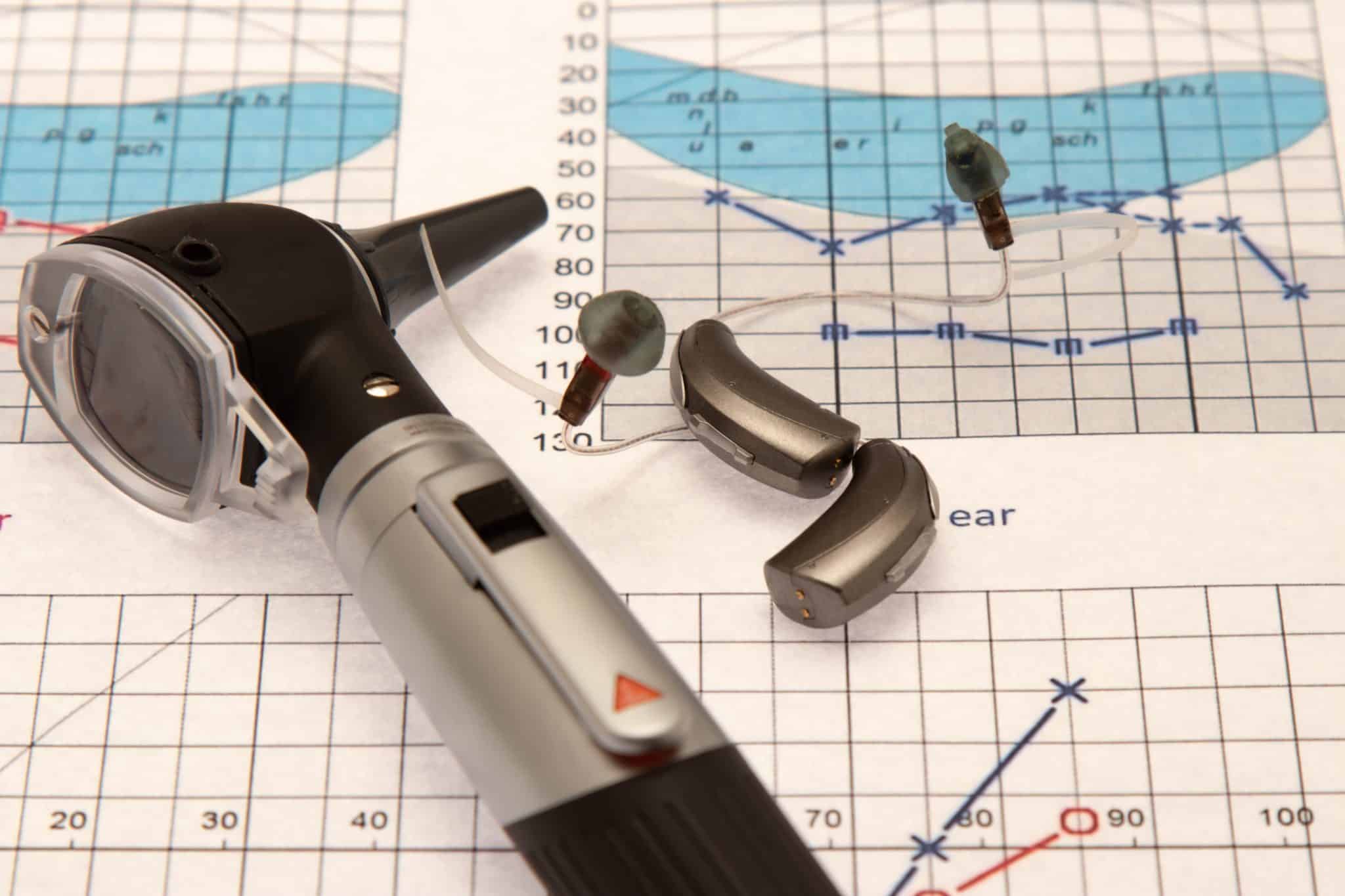The term sound describes energy that travels in waves. There are two ways to measure these waves: amplitude and frequency. Amplitude is reported in decibels (dB), while frequency is reported in Hertz (Hz). Below we review how amplitudes and frequencies impact your hearing.
Amplitude

Decibels measure amplitude, which can also be stated as the pressure or forcefulness of a soundwave. The greater the amplitude, the louder the sound. Another way to describe amplitude is volume.
It’s important to know that the decibel scale is logarithmic, or that it increases exponentially. So if there’s a 10 dB increase in sound, it means the sound is 10x louder, while if there’s a 20 dB increase in sound, it means the sound is 100x louder.
Below is a list of common sounds and their decibel outputs:
- Breathing: 10 dB
- Leaves rustling: 20 dB
- Conversation: 50 dB
- Vacuum Breathing: 10 dB
- Leaves rustling: 20 dB
- Conversation: 50 dB
- Vacuum cleanesr: 70 dB
- Heavy traffic: 85 dB
- Power tools: 90 dB
- Motorcycles: 100 dB
- Rock concerts: 110 dB
- Sirens: 120 dB
- Jet engine takeoff: 140 dB
- Shotguns: 160 dB
- : 70 dB
- Heavy traffic: 85 dB
- Power tools: 90 dB
- Motorcycles: 100 dB
- Rock concerts: 110 dB
- Sirens: 120 dB
- Jet engine takeoff: 140 dB
- Shotguns: 160 dB
Frequency
Hertz (Hz) measure frequency, or the number of sound vibration cycles in one second. We perceive frequency as sounds being high-frequency, meaning there are many cycles per second, or low-frequency, meaning there are fewer cycles per second. Another way to refer to frequency is pitch.
Human ears can detect sounds between 20 and 20,000 cycles per second, or 20-20,000 Hz.
What Sounds Cause Damage
According to the Centers for Disease Control and Prevention, “Noise above 70 dB over a prolonged period of time may start to damage your hearing. Loud noise above 120 dB can cause immediate harm to your ears.”
While sounds around 70 dB take at least eight hours to cause damage, sounds at 120 can cause instantaneous damage.
How to Protect Your Ears
You should always wear some form of hearing protection when participating in noisy activities like attending concerts at The Echo. If you work in a noisy occupation, your employer should provide you with hearing protection.
Types of hearing protection available include:
- Disposable foam earplugs
- Earmuffs
- Custom-molded earplugs from The House Institute
For more information or to schedule an appointment, call The House Institute today.